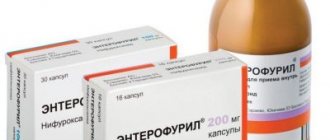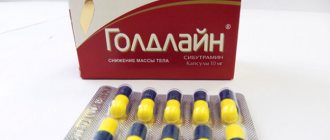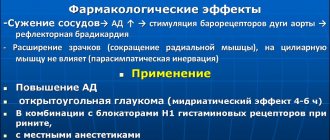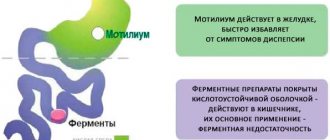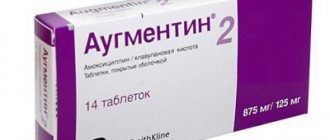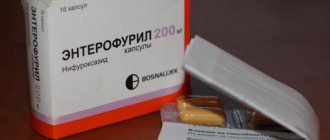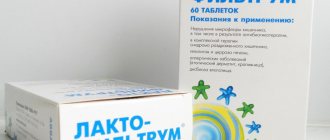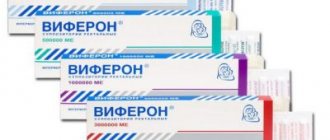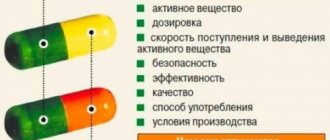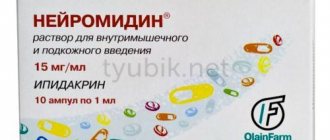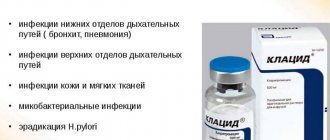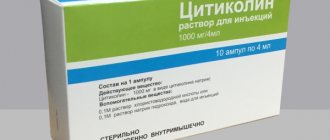Heartburn, pain, burning in the epigastric region are unpleasant symptoms that everyone has encountered at least once. An affordable remedy for getting rid of them and treating gastritis and GERD are Phosphalugel sachets. The cost of the drug depends on the number of packages and varies from 190 to 490 rubles.
Also in pharmacies there are substitutes for Phosphalugel, differing in composition, mechanism of action and therapeutic effect, price and manufacturer. Before purchasing a medicine or its analogue, read the instructions for use and consult a specialist.
Pharmacodynamics
As noted above, Phosphalugel is an antacid medication that has a wide range of effects on the body:
- enveloping
- antacid
- adsorbent
After consuming a pharmaceutical product, the activity of pepsin decreases. Aluminum phosphate, which is part of the medication, helps neutralize excess hydrochloric acid. It is important to note that this prevents secondary hypersecretion of gastric juice.
The substances contained in the medicine envelop the gastrointestinal mucosa. As a result, a layer is formed on it that can protect it from the aggressive effects of certain factors.
The medication eliminates:
- toxins
- harmful compounds
- gases
In addition, after taking the medicine, intestinal passage improves.
Treatment with Phosphalugel does not lead to electrolyte imbalance. In addition to all this, taking the medicine does not threaten alkalosis and the formation of stones.
Phosphalugel or Enterosgel
Manufacturer: TNK Silma, Russia
Release form: paste
Active ingredient: polymethylsiloxane polyhydrate
The drug Enterosgel is a domestic analogue of Phosphalugel with the following characteristics:
- adsorbs and removes toxins, pathogenic substances, viruses, allergens from the body;
- approved as a symptomatic remedy for all categories of patients, including infants, pregnant and lactating women;
- released freely, without a doctor's prescription;
- release form - paste without odor, taste, sweeteners and preservatives (there is a sweet form of Enterosgel paste);
- Available in tubes or disposable sachets, which are convenient to take with you;
- area of application – poisoning, diarrhea, additional remedy in the treatment of skin diseases (dermatitis, acne, psoriasis), allergies.
The drugs Enterosgel and Phosphalugel have common features:
- Available in gel form;
- prescribed for children and adults;
- have an adsorbent therapeutic effect.
The difference between the drugs is that Enterosgel is used as a sorbent for poisoning and diarrhea, while Phosphalugel is more often prescribed for heartburn and abdominal pain.
When can you prescribe
The drug is prescribed for:
- peptic ulcer of the duodenum and stomach
- gastritis
- diarrhea
- diaphragmatic hernia
- non-ulcer dyspepsia syndrome
- colon pathologies
- gastroesophageal reflux
- reflux esophagitis
- non-ulcer dyspepsia
- gastrointestinal disorders
- taking alcohol and medications
Phosphalugel or Gaviscon
Manufacturer: Reckitt Benckiser Healthcare, UK
Release form: lozenges, suspension
Active ingredient: sodium alginate, sodium bicarbonate, calcium carbonate
The drug Gaviscon is an imported analogue of Phosphalugel, available in the form of lozenges and suspensions. There is also a form of Gaviscon double action and Gaviscon forte for pregnant women.
The Phosphalugel analogue Gaviscon is used prophylactically and long-term for the treatment of GERD. Age restrictions depend on the form of release - suspension is allowed from 6 years, tablets from 12 years. A distinctive feature is safety during pregnancy.
Phosphalugel is prescribed for atrophic gastritis, hyperacid form of the disease, and ulcers. It has not only antacid, but also enveloping and adsorbing properties. Therefore, it is used for nausea, diarrhea, and stomach pain. Not used during pregnancy and breastfeeding; there are no strict age restrictions.
What to choose - Phosphalugel or Gaviscon depends on individual characteristics (age, pregnancy or breastfeeding), indications and financial capabilities.
How to use the drug
- The medication can be taken orally in pure form or diluted (0.5 cups of water per 1 sachet). You should not consume more than 6 sachets of the product per day.
- Adults and children over 6 years of age are usually prescribed 1-2 sachets of the drug two to three times a day.
- For peptic ulcers, the medicine should be taken 2 hours after eating or when pain occurs.
- For gastritis or dyspepsia, Phosphalugel is recommended to be taken before meals.
- Diseases of the colon require taking medication immediately after getting out of bed (on an empty stomach) and before going to bed.
- After meals and before bedtime, it is recommended to take the medicine for gastroesophageal reflux and diaphragmatic hernia.
- Children under 6 months are prescribed 1 teaspoon of gel. The medicine can be given to the baby after feeding, a maximum of 6 times a day. Children older than six months are allowed to take half a sachet of the product at a time.
- Phosphalugel helps well with nausea or vomiting; for this purpose you need to use 2 sachets of gel.
The instructions note that before taking the medication, you should knead the contents of the package to a homogeneous consistency. Afterwards, you need to cut or tear off the corner of the bag and squeeze out the gel.
Phosphalugel or Maalox – which is better?
Manufacturer: Sanofi or Farmatis, Italy or France
Release form: chewable tablets, suspension
Active ingredient: magnesium hydroxide, algeldrate
Synonyms: Maalox mini
For gastritis with high or normal acidity, peptic ulcer, reflux, heartburn, the drugs Phosphalugel and Maalox are used. Both are antacids with a sufficient clinical basis and are available without a doctor's prescription. During pregnancy and breastfeeding, they can be used only for their intended purpose.
Both drugs have similar effects - antacid, enveloping and adsorbent.
Difference between drugs:
- excellent active ingredients - Phosphalugel contains aluminum phosphate, Maalox is a combined product based on magnesium hydroxide and algeldrate;
- age restrictions - Phosphalugel can be prescribed by a doctor from 6 months of age, Maalox - from 15 years;
- Phosphalugel is available only in the form of a gel, Maalox has more forms - a suspension in a bottle and sachet, regular chewable tablets and without sugar.
The drugs are identical in effectiveness and properties. What to choose depends on financial capabilities, individual preferences, and restrictions.
special instructions
Doctors prescribe the drug with caution when:
- heart failure
- liver disease
- kidney pathologies
After taking the medicine, the concentration of aluminum in the bloodstream increases in the elderly, patients, and those with impaired kidney function.
If constipation occurs due to the use of Phosphalugel, you need to drink as much fluid as possible.
The medication is suitable for use for preventive purposes to reduce the absorption of radioactive substances.
Phosphalugel does not contain sugar, its use is safe for diabetes.
Treatment with Phosphalugel does not affect:
- x-ray results
- driving
- performing work that requires special concentration.
Phosphalugel or Omez – which is better?
Manufacturer: Dr. Reddy s, India
Release form: capsules, injection bottles
Active ingredient: omeprazole
Synonyms: Omeprazole, Ortanol, Losek maps, Omez insta, Ultop, Omitox, etc.
An analogue of the drug Phosphalugel, the Indian drug Omez, belongs to the proton pump inhibitors. The mechanism of action is a decrease in the production of hydrochloric acid by inhibiting the efficiency of enzymes and blocking the final stage of its secretion.
Other drugs belonging to the same group have a similar effect:
- Nolpaza;
- Nexium;
- Emanera;
- Rabeprazole;
- Esomeprazole, etc.
Omez is a cheaper analog than Phosphalugel, which is available with a doctor’s prescription (except for capsules with a dosage of 10 mg) and is used as directed. Indications: treatment of gastritis with increased secretion of hydrochloric acid, stomach ulcers, GERD, eradication of the bacterium Helicobacter pylori. Also, a Phosphalugel analogue can be prescribed in short courses to reduce the negative effect on the gastrointestinal mucosa if the patient is taking NSAIDs.
The drugs Omez and Phosphalugel differ in their mechanisms of action. Phosphalugel is an antacid that interacts with the released hydrochloric acid and neutralizes it. Omez is an analogue that regulates the process of hydrochloric acid production.
The drugs Omez and Phosphalugel can be prescribed together. What is best is decided by the doctor during an in-person examination based on the studies performed, the patient’s medical history and individual characteristics (contraindications, financial capabilities).
Phosphalugel or De-Nol
Manufacturer: ZiO-Zdorovye, Russia
Release form: tablets
Active ingredient: bismuth tripotassium dicitrate
Synonyms: Bismuth tripotassium dicitrate, Novobismol, Escape, Ulcavis
De-Nol is another analogue of Phosphalugel with an antiseptic, antiulcer, anti-inflammatory and astringent therapeutic effect. It is used for the eradication of Helicobacter pylori, for functional dyspepsia, irritable bowel syndrome and chronic gastritis in courses. Age limit – up to 4 years.
De-Nol and Phosphalugel have an enveloping effect and are used for gastritis and peptic ulcers. The first remedy is not used during pregnancy, the second can be used as prescribed by a doctor.
It is difficult to determine which analogue is better - De-Nol or Phosphalugel due to the different therapeutic effect and mechanism of action. The choice in favor of a particular drug is made by the doctor based on medical history, research, and the presence of contraindications.
Phosphalugel or Pepsan - which is better?
Manufacturer: Majoli Spindler or Galenik Vernen, France
Release form: oral gel, capsules
Active ingredients: guaiazulene, dimethicone
Pepsan P is an analogue of Phosphalugel, which has the following medicinal properties:
- reduces inflammation;
- reduces the secretion of hydrochloric acid in the stomach;
- reduces gas formation in the intestines, has a carminative effect;
- enhances the regeneration of damaged cells.
An analogue of Phosphalugel is approved from the age of 14; use by pregnant and lactating women is possible. Dispensed by prescription for GERD, functional gastrointestinal disorders and conditions with high acidity of gastric juice.
The choice in favor of Phosphalugel or Pepsan is made by a doctor. If you need to relieve heartburn, the over-the-counter drug Phosphalugel is suitable.
Other analogues of Phosphalugel
- Ranitidine is a drug in tablets from the group of H2-histamine receptor blockers. When taken, the analogue suppresses the secretion of hydrochloric acid, increases the acidity of gastric contents and reduces the activity of pepsin. Accepted by courses. The advantage is the relatively low price (from 20 to 120 rubles depending on the manufacturer).
- Befungin is a herbal analogue in the form of a solution, used in gastroenterology for dyspeptic disorders and impaired intestinal function as an adjuvant. Contains ethanol, not for use by children under 18 years of age, pregnant or lactating women.
- Atoxil and Polysorb are preparations based on silicon dioxide in powder form with adsorbing properties. Used for intoxication, diarrhea, allergic and skin diseases. The first analogue is produced and sold in Ukraine, the second is a domestic drug. Polysorb is actively used in pediatrics (there are no age restrictions); according to patient reviews, it has a more pleasant taste than other adsorbents.
- Gastrofarm - Bulgarian tablets containing lactobacilli and their metabolic products. The analogue is used for preventive and therapeutic purposes in children over 3 years of age and adults to reduce heartburn, treat gastritis and stomach ulcers.
- Exportal is a drug for normalizing intestinal function with a pronounced laxative effect. They contain lactitol, which, when broken down, increases the volume of feces, softens them, and makes defecation easier. There are two forms of release of the analogue - for adults and children.
- Phosphogliv is a domestic drug with hepatoprotective properties. Can be used with Phosphalugel or sorbents for poisoning, skin and allergic diseases. The medicine helps restore liver cells when they are damaged and reduces accompanying nausea.
- Duspatalin is a drug in the form of capsules or tablets for the complex treatment of irritable bowel syndrome. Symptoms of the condition are stomach pain, a feeling of fullness and heaviness, changes in the frequency and consistency of stools (diarrhea or constipation), flatulence and cramps.
- Mezim-Forte is an enzyme remedy for improving digestion. It is used for insufficient enzyme production, changes in diet, and an abundance of fatty, smoked and fried foods. One of the indications is stomach pain associated with poor digestion. Without a doctor's prescription, you should not regularly use Mezim and its analogues (synonyms), since the production of enzymes by the body is reduced.
- Alfazox is a medical product (not a drug) in the form of a solution for internal use. Its action is aimed at eliminating the symptoms of GERD, protecting the mucous membrane of the esophagus and stomach and healing erosions.
- Motilium is an analogue of Phosphalugel in the form of regular and lozenges, suspensions. Contains domperidone, the effect of the substance is aimed at accelerating bowel movements, reducing and stopping vomiting, and increasing the pressure of the sphincter of the lower esophagus. The advantage of the analogue is that it has no effect on gastric secretion. Indications: dyspeptic disorders accompanied by nausea, vomiting, heartburn or sour belching, flatulence, stomach pain and other symptoms.
List of drugs that can replace Phosphalugel (with prices in Russia)
Price for Phosphalugel in January 2021:
- 175 rubles for 6 bags,
- 360 rub. for 20 pcs.
| Exact structural analogues |
|
| Other analogues on the pharmaceutical market |
|
Neither the gel nor its analogs are intended for self-medication. The described medications are used in complex treatment regimens together with other groups of medications prescribed by a gastroenterologist.
